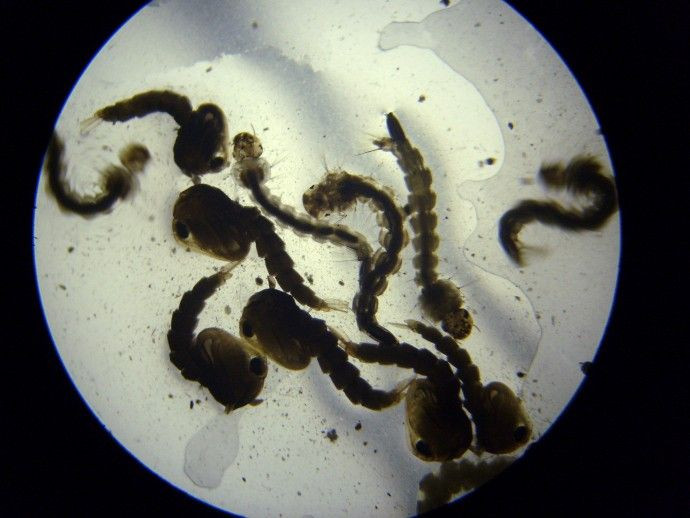GM Mosquitoes Could Help Control Dengue

Dengue is a mosquito-borne disease that is sometimes fatal for which there is no vaccine or cure. But the problem in attacking the mosquitoes is that insecticides do a lot of collateral damage, as they are toxic to people and other animals as well.
A U.K. biotechnology company called Oxitec may have an answer: genetically engineering the mosquitoes to pass on a suicide gene that kills the insect before they mature.
Dengue affects 50 million people every year, according to the World Health Organization, and about 40 percent of the world's population is vulnerable because they live in areas where the mosquitoes live. There have been outbreaks in the U.S., in Florida, Hawaii, and Texas, with the last outbreak in Key West.
Dr. Luke Alphey, chief scientific officer at Oxitec, says the method is an improvement on the sterile insect technique (STI) which is in common use for other insect species. In STI, a group of sterile male insects are released into the wild, and they mate with females, who then have no offspring.
The team from Oxitec ran a trial with the Mosquito Research and Control Unit in the Cayman Islands in the Caribbean. They released the genetically modified insects into a 40-acre area three times a week from May to October. In just six months, 80 percent of the mosquitoes were gone.
The male mosquitoes were given a gene that makes them dependent on tetracycline, a common antibiotic, for their survival as they develop. That gene is then passed on to their descendants.
When the mosquitoes are released into a wild population, their offspring don't get the tetracycline when they are developing, and they die. This cuts down the population of mosquitoes, and with it the spread of dengue.
A key feature in the design of the system is that the adult males not have an ongoing requirement for tetracycline, he said. They would die too soon after release and be ineffective.
When genetically altering the mosquitoes, males are chosen because they don't bite, and a major plus is that the mosquitoes are not native to many areas where dengue is a problem. The one that carries dengue, Aedes aegypti, isn't native to the Caribbean, as it comes from Africa. That means that even if one eliminated the whole population of mosquitoes it wouldn't affect the rest of the ecosystem very much. Also, unlike insecticides, this only kills the mosquitoes and doesn't leave harmful toxins around.
Dengue is a good target, Alphey says, because only one species of mosquito transmits the disease, by feeding on an infected person and then biting someone else. Since there is no vaccine and no cure, mosquito control is the only way to prevent it.
Alphey notes that this avenue of control would be less successful with malaria or West Nile virus, which is carried by a wider range of mosquito species as well as animals (West Nile, for example, is carried by birds as well as humans).
Oxitec has run tests in the Cayman Islands and further experiments are being set up in Mexico. The Caymans were a good site because there were no other dengue control programs in place, and it was easier to measure the effect of the genetically-altered bugs on the population.
The idea came from work with fruit flies, Alphey says. I had heard of sterilizing insects with radiation, and I thought if I could apply genetic methods I could transform the sterile insect technique, he said.
While there is some criticism of releasing genetically modified organisms into the wild, Alphey stresses that the environmental impact has to be addressed on a case-by case basis.
© Copyright IBTimes 2025. All rights reserved.





















